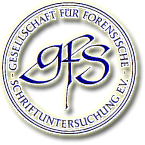


A R T I C L E S O F A S S O C I A T I O N
In compliance with the Meeting of Members in Hamburg in 1990, in Königswinter in 2005, 2012, 2015 and 2018 concerning corrections and additions to the Articles of Association, the GFS now has the following Rules:
1. Articles of Association
2. Terms of Admission
3. Examination Regulations
4. Regulations of the Arbitration and Disciplinary Committee
5. Regulations for the Extension of Membership
„GESELLSCHAFT FÜR FORENSISCHE SCHRIFTUNTERSUCHUNG (GFS)“
(Society for the Forensic Examination of Writing)
founded on 14 October 1951 as
„Fachverband freiberuflicher gerichtlicher Schriftsachverständiger e. V.“
(Association of Freelance Forensic Experts)
and renamed in 1967 to
„Fachverband der Sachverständigen für gerichtliche Schriftuntersuchung e. V.“
(Association of Experts on Forensic Examination of Writing)
Article 1 Name
The Society bears the name “Gesellschaft für Forensische Schriftuntersuchung (GFS)” and is listed in Germany as a court-registered society.
Article 2 Domicile
The registered domicile of the Society is Frankfurt on the Main, Germany.
Article 3 Purpose and Tasks
(1) The Society promotes the forensic examination of writing in research and practice and represents the interests of the writing-examination profession. „Writing-examination“ includes also in the broader sense fields of „document-examination“.The forensic examination of writing is not dealing with graphology. Graphology refers to personality diagnostics on the basis of graphic characteristics. According to their objectives and the methods of examination, these are two different subject areas which – apart from the object of the assessment – have no similarities and each require a different qualification.
(2) The Society pursues its objectives particularly by:
1. Congresses and meetings, which shall serve the purposes of research, further education and the exchange of professional experience,
2. Observance and fostering of professional ethics, promotion of the reputation of the profession as well as the development and implementation of appropriate measures of quality management in forensic writing examination within and outside of the GFS,
3. Informing the public on questions relating to the forensic examination of writing, in particular by supporting the public prosecutor's offices, courts and chambers of industry and commerce in the appointment of experts,
4. Promotion of and participation in the regulatory procedures for the training and examination of forensic writing experts,
5. Co-operation with relevant associations.
Article 4 Membership
(1) The Society comprises ordinary members, candidate members, senators, associated members and honorary members. Membership is not restricted to any nationality.
(2) The ordinary membership is limited to 5 years and can be extended for further 5 years upon request of a member. To become an ordinary member, the applicant shall
1. be recommended for admission by at least two existing ordinary members,
2. prove that he/she possesses the particular qualification to produce appropriate expert reports in the field of forensic writing-examination,
3. have at his/her disposal the equipment required for the activities of a forensic writing expert,
4. have personal aptitudes,
5. have a sound financial situation.
To prove his/her professional ability, the candidate shall undergo an examination before the Examining Board of the Society. In place of this examination, the Board may intend to recognize an equivalent qualification achieved at another institution.
Equivalency is determined by the professional guidelines of the GFS. If the Board supports the admission as ordinary member without examination, the Board shall notify this decision including its reasons to the Examining Board. If there is no consent to the need of an examination between Board and Examining Board an examination has to be taken. The result of the examination is binding. For further details, reference is made to the Examination Regulations.
For extending the ordinary membership, no guarantors are required, but information must be provided on the number of submitted reports, disqualifications on grounds of bias, type and duration of continuing education (participation in meetings and workshops, preparation of proficiency tests, publications etc.) and the results of the proficiency tests from the previous 5 years have to be presented.
The formal decision on admission as an ordinary member and the extension of the ordinary membership is made by the Board. If members of the Board are affected by the need for an extension, the Arbitration and Disciplinary Committee takes the decision. For members of the Arbitration and Disciplinary Committee, the Examining Board decides on the extension of membership. The decision does not have to be explained and is non-appealable. For details refer to the Regulations for the Extension of Membership.
If the ordinary membership cannot be extended, the membership status changes to senator.
(3) Persons who are still in training can be admitted as candidate members of the Society upon the recommendation of two ordinary members. The Board shall decide on the admission. The decision does not have to provide reasons and is non-appealable.
Candidate members have no electoral rights.
Candidate-member status shall not last longer than five years. To be admitted as an ordinary member, the candidate must have undergone an education for a minimum of three years and satisfy the requirements of Paragraph 2 above.
(4) Persons who are committed to the tasks and objectives of the Society, but cannot fully satisfy the requirements for ordinary membership, can apply for associated membership. The Board shall decide on the admission. The decision does not have to provide reasons and is non-appealable.
Associate members have no electoral rights. They may not call upon the services of the Society as a professional organisation and may not advertise with their membership.
(5) Before admission, the Rules of the Society are to be made known to the applicant and have to be accepted by him/her in writing.
(6) Persons who have rendered outstanding services to the profession of forensic examination of writing can be appointed as honorary members. The appointment to honorary membership shall be effected upon application of the Board by the Meeting of Members.
(7) Ordinary Members who are no longer practicing as experts for personal reasons (such as age or health), but wish to participate actively in implementation of the objectives of the Society may apply for membership as senator. The Board shall decide on their admission. The decision does not have to be explained and is non-appealable. The change of status from senator to ordinary member requires the fulfillment of the conditions of the Regulations for the Extension of Membership.
Article 5 Rights and Obligations of Members
(1) The members have in particular the following rights:
1. Participation in all events held by the Society subject to available capacity,
2. To make applications at Meetings of Members,
3. Right to vote at Meetings of Members,
4. Active and passive electoral rights,
5. The make use of all facilities created in the interests of the members and for their education subject to available capacity,
6. To bear the title „Expert on Forensic Examination of Writing (GFS)“,
7. Inclusion in the list of experts of the Society and the use of its stamp/logo up to a maximum diameter of 40 mm.
Rights Nos. 2, 3, and 4 are restricted to ordinary members, senators and honorary members. Rights Nos. 1, 5, 6 and 7 are restricted to ordinary members.
(2) Ordinary members have in particular the following obligations:
1. Promotion of the objectives and tasks of the Society, as laid down its Articles. The member shall refrain from any activity which might damage the reputation of the Society,
2. Observation of the rules and regulations of the Society,
3. Continuous, self-initiated professional further education in research and practice and use of appropriate examining methods. For extending the ordinary membership, in addition to proof of type and duration of continuous further education, additional information must be provided on the number of submitted reports, disqualifications on grounds of bias applications or fines and the results of the proficiency tests from the previous 5 years have to be presented,
4. Participation in the proficiency tests offered by the Society,
5. Acceptance of decisions of the Arbitration and Disciplinary Committee of the Society,
6. Ordinary members are not allowed to expose themselves to any influence in the rendering of expert opinions, which jeopardize the trustworthiness and credibility of their statements (independence). They must not enter into obligations that are likely to distort actual findings and judgments (freedom from instructions).
7. Ordinary members have to render their reports taking into account the current state of science, technology and experience. The factual basis for their professional assessments must be carefully determined and the results substantiated in a comprehensible way. The generally applicable minimum requirements for expert opinions must be observed (diligence).
8. Ordinary members must maintain strict neutrality in the rendering of their reports and must answer the questions objectively and impartially (impartiality).
Obligations Nos. 3 and 4 are restricted to ordinary members.
Article 6 Membership Fees
(1) Membership fees for members and associate members are set by the Meeting of Members on the recommendation of the Board for a term the following two years.
(2) Senators, candidate members and associate members pay half of the fee applicable to ordinary members.
(3) Fees are due at the beginning of each calendar year and are to be remitted without extra demand to the treasurer within three months.
(4) The Board can grant exemptions from payment of membership fees, temporarily or indefinitely, wholly or partly, for good cause, for individual members.
(5) Honorary members are exempt from the payment of membership fees.
Article 7 Termination of Membership
(1) Membership shall be terminated by resignation, expulsion or death of a member.
(2) Termination of membership is possible only at the end of a calendar year with three months’ notice.
(3) The Arbitration and Disciplinary Committee decides on the expulsion of a member. Any ordinary member or the Board may submit an application for the expulsion of a member.
Requests for expulsion must be submitted in written form. Reasons for expulsion are in particular given, if a member
2. does not fulfil the obligations as a member as per Article 5 Paragraph 2,
3. acts contrary to the aims and purposes of the Society,
4. commits dishonourable or criminal acts,
5. has not paid the membership fees after the due date and two reminders, with the last reminder containing a deadline. The Society is not obliged to send a reminder by registered mail. A reminder shall be deemed to be received by a member, once the Society has sent the reminder by mail. As evidence the testimonies of the Treasurer and at least one Board-member shall be sufficient. If a reminder cannot be sent because an address change has not been communicated, it is deemed to have been sent and served. The exclusion of a member shall not be construed as a waiver of the payment of the annual subscription due.
(4) Expulsion from the Society can be contested by the member concerned at the Meeting of Members within one month (Article 8 of the Regulations of the Arbitration and Disciplinary Committee), whose decision is final and binding.
Article 8 Committees and Corporate Bodies of the Society
The committees and corporate bodies of the Society include:
1. The Meeting of Members.
2. The Board.
3. The Examining Board.
4. The Arbitration and Disciplinary Committee.
Article 9 The Meeting of Members
(1) The Meeting of Members is the highest corporate body of the Society and is competent for all matters unless the Articles of Association determine other corporate bodies to be competent. In particular, it receives the activity report from the Board and the financial report, selects the Accountant, decides on discharging the Board and on applications of other organs and members, and decides on the dissolution of the Society.
(2) The ordinary Meeting of Members takes place once a year. It is called and chaired by the President or the Vice-President.
If possible, it should be combined with a scientific working meeting or congress. The Meeting of Members is called in writing or electronically with two months’ prior notice stating the agenda. Proposals for the agenda are to be sent by an ordinary member in writing or electronically at least four weeks before the scheduled date.
(3) The Board can call Meetings of Members on its own initiative. It is obliged to do so, if at least one third of the ordinary members apply for such a meeting.
(4) Any number of Members present at a Meeting of Members shall constitute a quorum. Decisions are passed by a relative majority of votes. The majority is measured only by the number of „yes“ and „no“ votes cast. Abstentions do not count.
As an exception from this rule, amendments to the Articles of Association can only be passed by a three-quarters majority at a Meeting of Members, at which at least one third of all ordinary members must be present.
(5) Minutes shall be written for each Meeting of Members and signed by the Chairperson and the recorder of the minutes.
Article 10 The Board
(1) The Board consists of the President, the Vice-President, the Chairperson, the Treasurer and the Co-ordinator of congresses and meetings. In accordance with Section 26 of the German Civil Code, the „Board“ consists of the President and the Vice-President.
(2) The Board is elected by the Meeting of Members for a period of two years. Re-election is possible.
(3) Decisions of the Board are passed by the majority of votes cast by the Board-members. If there is parity of votes, the President's vote shall decide, in his absence the Vice-President's vote.
(4) The Board shall conduct the affairs of the Society on an honorary basis.
(5) The Board gives itself Procedural Rules, which shall be distributed to the members for information.
Article 11 The Examining Board
(1) The Examining Board consists of three ordinary members elected by the Meeting of Members for a period of two years. Re-election is possible. A maximum of one member of the Examining Board may also be a member of the Board.
(2) The Examining Board determines the specific contents of the respective examinations, which are submitted to the board for information.
Article 12 The Arbitration and Disciplinary Committee
(1) The Arbitration and Disciplinary Committee consists of three ordinary members or senators and two deputies. Members of the Arbitration and Disciplinary Committee shall not be members of the Board. They are elected by the Meeting of Members for a period of two years. Re-election is possible.
(2) It is the duty of the Arbitration and Disciplinary Committee to protect the interests of the Society and its members. It shall convene upon request of an ordinary member or the Board (Article 2 Paragraph 1 of the Regulations of the Arbitration and Disciplinary Committee).
(3) The Arbitration and Disciplinary Committee shall implement its rules of procedure, which are submitted to the Board for information.
Article 13 Dissolution of the Society
(1) The dissolution of the Society can only be decided upon by a Meeting of Members specially called for this purpose with two months' notice and with a majority of three quarters of all ordinary members, which may vote in person or in writing.
(2) If the Society is dissolved or annulled, or if its previous purpose becomes obsolete, its assets shall be transferred to an association which will use them for the purposes specified in Article 3 of the Articles. The decision relating thereto shall be taken by the Board after seeking the approval of the competent Tax Office.
Wiesbaden, 19 September 1985
changed on 24 June1999
changed on 26 May 2005
changed on 03 June 2010
changed on 07 June 2012
changed on 04 June 2015
changed on 31 May 2018
( Dr Michael Rieß ) ( Benedikt Armbruster ) ( Beate Rücker-Fuchs )
President Vice-President Secretary













